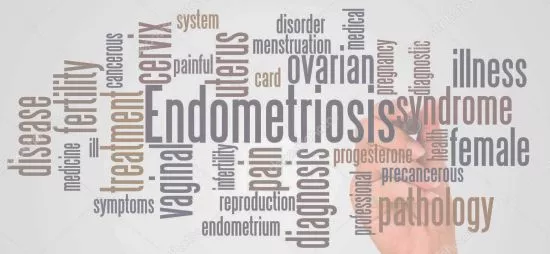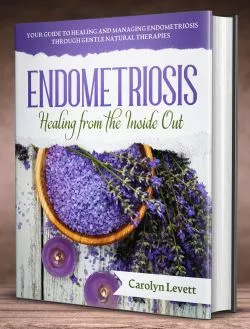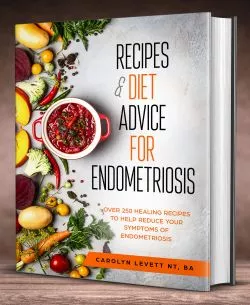Endometriosis
awareness - why is nobody really listening?
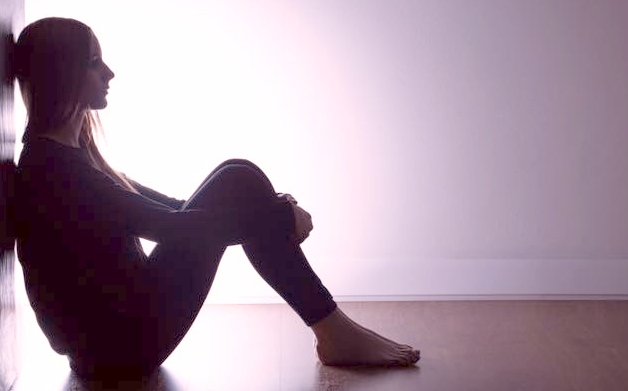
Millions of women around the world today who suffer endometriosis are simply NOT taken seriously when they try to express the pain, the lethargy, the tiredness, the bowel problems, eating problems, flu symptoms, and all the myriad of other strange or distressing symptoms!!! Not by their doctor, and often not by their family or their friends.
Why is this affliction not recognised by the medical profession for what it is - a serious disabling disease? Why are women being dismissed as neurotic, when some of them end up in the emergency department of their local hospital month after month? Why is it many insurance companies in the US do not recognise the disabling nature of this disease?
Why is it I get messages from many women who are deeply frightened and feel so alone that they do not know which way to turn? Why are they not getting the support they desperately need!
Improved diagnostic tools and surgical treatments are now available and have been available for a few decades. And yet women still go un-diagnosed because they, and their symptoms, are not taken seriously.
This disease could easily be classed as being of epidemic proportions, especially when you look at the figures globally – 176 million that we know of to date. As time goes on, and more women finally get diagnosed, the more likely it is that most people will know someone who has been affected by this disease.
Constant negative attitudes
Why are women dismissed as neurotic … ‘it’s just a woman thing’ … ‘oh, it’s natural for women to have pelvic pain’ ….. ?
Here are extracts from a Newsletter written by a Nancy Peterson RN (an endometriosis advocate) - broaching the subject of the psychological dismissal that so many women endure; not only from the medical profession, but from family, friends and colleagues.
This article first appeared in "Women's Health Forum," an interdisciplinary newsletter for physicians and medical students. (Published date unknown - my comments are inserted in italics in the following newsletter extract)
Psycho-Social Issues for Women with Endometriosis
By Nancy Petersen, RN
‘In the early 1920's Sampson and others told us that women with endometriosis were infertile and that the primary pain symptom was dysmenorrhea. It was further asserted that the most frequently involved areas were the ovaries, and that the lesions were black, and/or brown. The original concepts further told us that pregnancy, menopause, or surgical castration would affect a cure. On these basic concepts all modern therapies have been based, including drug therapies suppressing ovarian function......
......... What is happening to women across the North American continent is that large numbers who fail to fit the original paradigm of endometriosis are undergoing psychological dismissal. This dismissal is very damaging in that they become isolated from their families, partners and the health care system. This dismissal is reported by Kate Weinstein in her book, ‘Living with Endometriosis,’ to be as high as 75 %.
Since medical therapy does not eradicate the disease, and since laser vaporization and electrocautery have not been validated by follow-up study, most patients with endometriosis are at risk for ineffective therapy. Patients come to Bend (The Endometriosis Treatment Center) from around the world when multiple attempts at treatment have resulted in failure. Their stories illustrate that their dismissal is real, and can come from female as well as from male physicians.
They report being referred for counselling, psychiatric care, or just being ignored since they have not responded to treatment. As those around them begin to see the dichotomy between what the health care provider believes and what the patient is experiencing, considerable confusion develops.
Too often there is abandonment of the patient by her crucial support system and she grows more and more isolated. The degree of isolation and frustration is proportioned to the degree of treatment received.
The impact on their relationships and the quality of their lives may lack appreciation in the healthcare arena. In the presence of pelvic endometriosis, these women often exhibit abdominal bloating, abdominal pain, pale skin, faintness, restlessness, and sometimes low-grade fevers. These symptoms in other patients would garner healthy respect by most physicians.
In women with endometriosis, doctors are somehow able to excuse the presence of such symptoms and their denial grows more profound once the woman has been castrated (hysterectomy)for treatment. (Because there is no answer given by the doctor as to why a woman still has endo after having a total hysterectomy - after all, she was advised that the hysterectomy would get rid of the disease; and a doctor is unlikely to own up and say he was wrong!!!)
If millions of men suffered unbearable pain during sex, bowel movements, and exercise, and were offered feminising hormones or surgical castration as treatment, our attitudes would be quite different.
Women with endometriosis struggle with life altering pain, less than supportive attitudes by far too many healthcare providers, try to maintain relationships, family and careers, and they deserve our support and respect.
Until there is widespread agreement on the nature of this disease, the best outcome-based therapies, and follow up studies to support all that we do for women with endometriosis, these women do not deserve the psychological dismissal many of them get.
This newsletter is recognition among certain members of the medical profession that attitudes need to change, but there is a long way to go to see real improvement.’
~ END ~
What is to be done to alleviate this very real medical dismissal and the isolation and fear that women with endometriosis suffer?
Key words come to mind here that need to be added to the vocabulary for women with endometriosis - understanding, support, tolerance, sympathy, compassion, patience, guidance, communication, sharing, hope, optimism, encouragement, reassurance …… these words sum up an attitude that women with endometriosis deserve, and acknowledges their complex needs.

The needs of women with endo are complex, because this disease is very complex in the different ways it affects women and the varying symptoms it brings. Also, their needs are very complex because of the far-reaching effects it has on a woman’s life.
Unfortunately, it seems that the only way for change to happen to be really effective, is by action to be taken by women themselves.
This has already been started by the large numbers of social media groups, endometriosis blog pages, support groups, websites, campaigns, political lobbying, and so on, that have been undertaken by thousands of women with endometriosis. But still there are many, many women who feel isolated, ignored and frightened.
One of the problems I have noticed (by the number of queries I get at the website) is that women can have such varying and frightening symptoms. They get in touch to find out more about their symptoms and to find out if other women have suffered the same; to find out if their symptoms are common and to ask what the expected outcome will be, and so on.
This is where communication is vital and can help women immensely and help reduce the stress and worry they suffer. Women need to continue exchanging advice and compare experiences. The growth of endometriosis blog pages and support groups is evidence that such communication is vital.
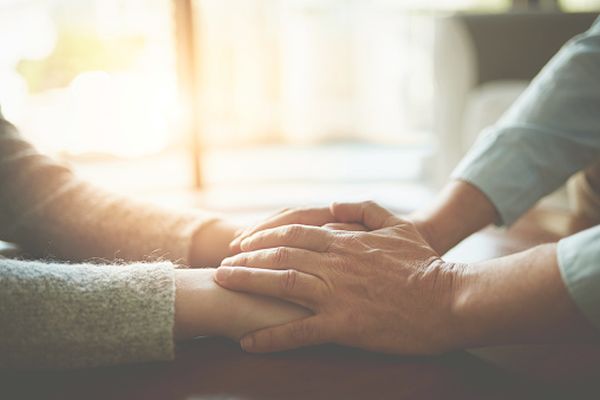
A need to regain power
There is nothing quite as undermining to your immune-system and your health than a feeling of hopelessness and not having any power in your life. This is what happens to women with endo over and over again when they try in vain to be understood by others; especially by those they approach for medical help to fix their ever-declining health.
Women are starting to look elsewhere for alternative methods of treatment and caring support if they are not getting it from their doctor. Many are turning to natural therapies and self-help measures to help with the physical as well as mental symptoms.
It is worth noting that it is totally viable and practical to combine mainstream treatments alongside natural therapies, which will help provide added support to aid healing. Additionally, the nature of treatment offered from natural health practitioners is by its very nature holistic and all your symptoms will be taken seriously and nothing related to your health is dismissed.
Your pain is as real as the ground you walk on, and it needs to be taken seriously. The outdated ideas and attitudes of the functions and workings of women’s bodies - that period pains are normal; and that menstrual functions are a dark taboo area not to be talked about openly - are probably part of the reason that endometriosis is not taken seriously.
Endometriosis is a disabling disease and as such needs to be give serious attention from the medical profession and society in general.
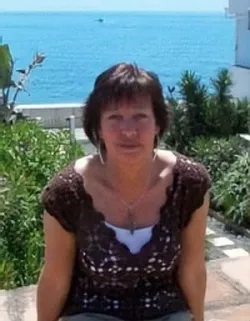
About the Author
My name is Carolyn Levett, the Founder of endo-resolved - I am an Integrative Health Coach having studied nutrition, naturopathy, aromatherapy as well as being a published author. I used to suffer from severe endometriosis and was able to regained my health and heal from the disease with the support of nutrition and natural therapies.
My motivation is to help other women with endometriosis to heal their bodies so they may overcome this awful disease without having to rely on toxic drugs and surgeries which can cause further damage - with healing thoughts, Carolyn.
 As featured in:
As featured in:



